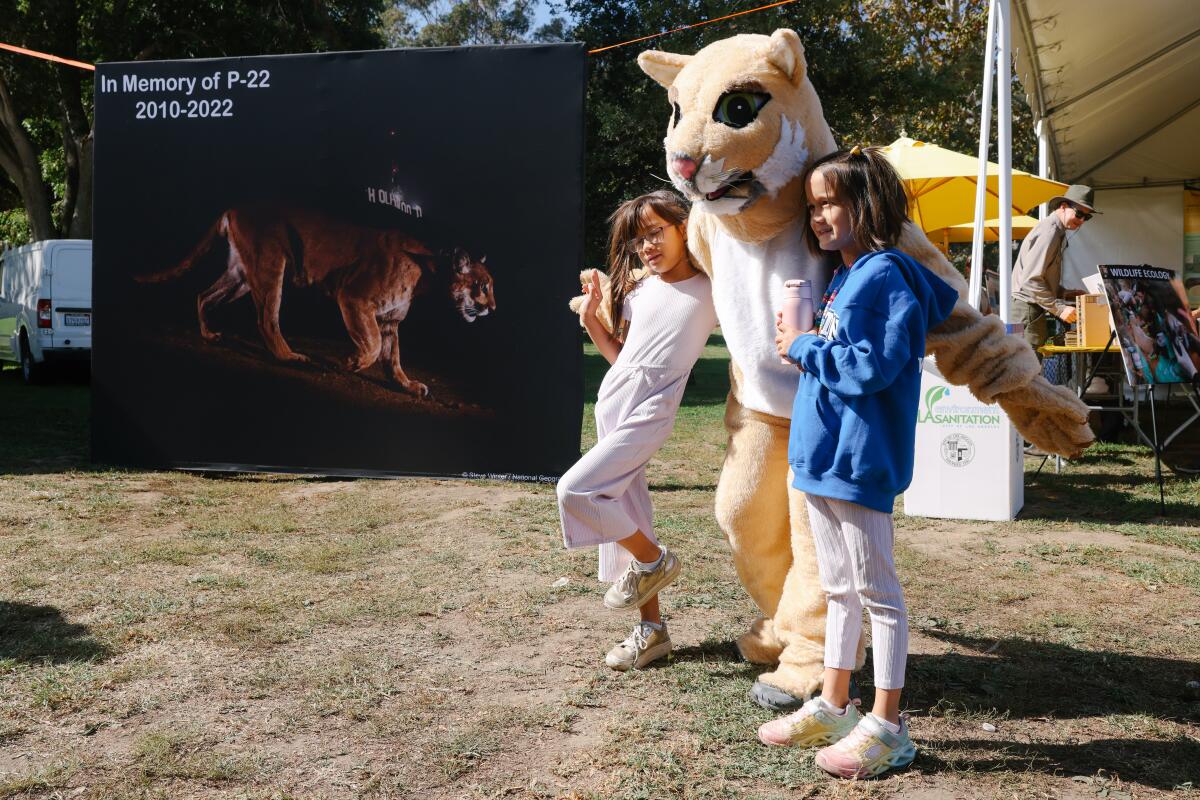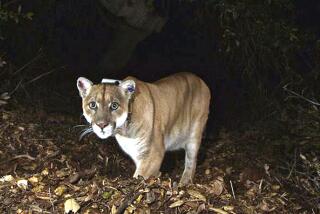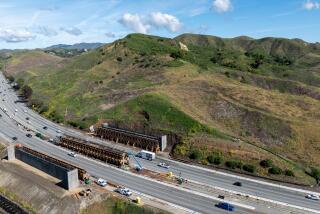Griffith Park hosts first P-22 Day since death of L.A.’s beloved cougar

The legacy of Los Angeles’ most famous mountain lion continued Sunday at Griffith Park with the eighth annual P-22 Day.
Thousands of wildlife supporters and fans united at Shane’s Inspiration playground to enjoy live music, food trucks, muralists and native-plant giveaways.
Organized by the National Wildlife Federation’s #SaveLACougars campaign, the free, family-friendly festival honored the famed mountain lion who amassed a celebrity-worthy following and jump-started campaigns to save wildlife throughout Southern California.
Beth Pratt, a regional executive director in California for the National Wildlife Federation, has celebrated the renowned puma at the park since 2016.
At the start of Sunday’s festivities, she took to the hills where P-22 once roamed.
She read scientific papers and drove with scientist in the past, so she thought she knew the difficulties, but the hike retracing P-22’s journey provided a new perspective, Pratt said.
After completing some live performances, Pratt shed tears among the 15,000 who honored the beloved big cat on Sunday.
“Monarch butterflies to mountain lions are ringing the alarm bells,” but there’s a movement that shows wildlife belongs here, Pratt said.
Pratt recalled more than 13,000 people attending last year’s celebration for L.A.’s most famous cat. But this is the first time P-22 Day has been held since the cougar’s death, so this year’s crowd might be the biggest yet.
“The loss is still really raw for a lot of people,” Pratt said. “During the other seven [festivals] he was here snapping and listening to the music we were playing.”
Not literally, joked Pratt, who sports a tattoo of the cougar’s face on her arm.
But wildlife supporters could bank on the big cat coming down from the mountaintop to amaze onlookers who were lucky enough to catch a glimpse of him over the years.
P-22 first captured the world’s attention in 2012, when a motion-sensing camera caught an image of his hindquarters and tail in Griffith Park.
He survived a parasitic infection and a cramped range in Griffith Park, but officials with the National Park Service and the state’s wildlife department captured P-22 after he started to show increasing “signs of distress,” including three attacks on dogs in a month and several near-miss encounters with people walking in Los Feliz and Silver Lake.
Thought to be about 12 years old at the time of his death, the mountain lion was “compassionately euthanized” in December 2022. He was suffering from a number of health issues at the time as well as from internal injuries that officials believed occurred after he was hit by a car.
The cougar’s popularity only grew through the years after his picture was first seen in The Times and in other news coverage over the years.
By order of the Los Angeles City Council, every Oct. 22 is celebrated as “P-22 Day.”
The sad plight of P-22 — isolated by freeways in the relatively cramped greenery of Griffith Park — motivated state officials who wanted to help prevent other creatures from suffering a similar fate to take action.
The result is the world’s largest wildlife overpass, under construction over the 101 Freeway near Liberty Canyon in Agoura Hills.
Pratt remembers raising millions to construct the crossing, which is expected to provide safe passage for mountain lions and other wildlife after completion in 2025.
But Pratt reminds the public there’s more to be done as officials ready for the next phase of a fundraising campaign.
“When we save wildlife, we save ourselves,” she said.
Thankfully, Pratt found partners in nearly 70 other organizations that educated the public on P-22 Day.
Some attendees studied P-22 murals while others made silk-screen copies of P-22’s footprints. Children were able to learn how planting native milkweed in the frontyard can act as a grocery store for monarchs.
“Everybody connects to P-22 differently,” Pratt said.
“That is P-22’s legacy,” she exclaimed, “showing people in a real way — off the scientific paper — how they can make a difference in the lives of amazing predators.”
“It goes to show,” she said, “there’s a lot more we can do to make it a little easier for them.”
“The least we can do is help them cross the road.”
More to Read
Sign up for Essential California
The most important California stories and recommendations in your inbox every morning.
You may occasionally receive promotional content from the Los Angeles Times.











